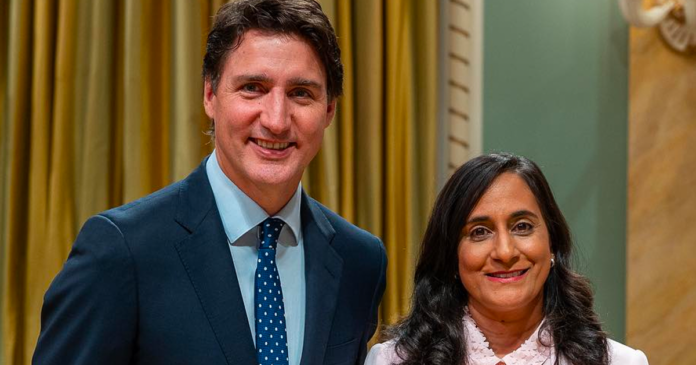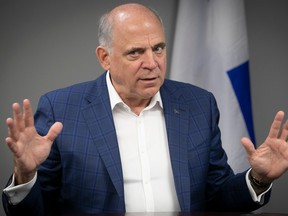CBC
Tue, August 15, 2023

The Town of High Level welcomed evacuees from Fox Lake on May 4. Mayor Crystal McAteer said a multipurpose evacuation centre could replace the aging arena and better serve evacuees from northern Alberta and Northwest Territories.
A northern Alberta town that has supported thousands of evacuees continues to push for funding for a special facility to help those who are fleeing their homes due to wildfires and floods.
The Town of High Level has hosted thousands of evacuees in recent years, including many during Alberta's record-breaking wildfire season this year. The town is currently housing wildfire evacuees from Hay River, N.W.T.
The town would like to build a multipurpose evacuation centre designed to help with emergency response. The project in partnership with Dene Tha' First Nation is expected to cost around $90 million.
"We designed the facility with all the amenities that are not in other evacuation centres," High Level Mayor Crystal McAteer said.
McAteer said the facility design includes medical rooms, storage for goods, a place for pets and cultural spaces for evacuees. She said it would also replace the aging arena and serve as a recreation space for area schools.
"We've been applying for grants and thus far have not been successful in either lobbying the federal government or the provincial government. They believe that the cost is too high for a community of 4,000 people," McAteer said.
McAteer says that the town, 733 kilometres north of Edmonton, is a hub for the region and serves a population of 30,000.
Funding requests
Mackenzie Blyth, a spokesperson for municipal affairs, said the province is aware of a $35 million funding request, but added the town has not formally applied for any provincial funding. Blyth said the town could apply through through the Municipal Sustainability Initiative and the Canada Community Building Fund.
McAteer said the planned facility was also not a successful applicant to the federal Green and Inclusive Community Buildings Program. A request by CBC News to Infrastructure Canada asking why the town was not successful was not answered.
McAteer said the town may have to shift strategies to get funding for the project.
"Maybe we build it in such a manner that it can be added to as more funding becomes available, sort of like Lego blocks."
Premier Danielle Smith toured northwest Alberta last week. She met with McAteer and Dene Tha' Chief Wilfred Hooka-Nooza separately, and both local leaders said they discussed ways to improve fire response.
Dene Tha' partnership
Kenneth Beaulieu, a Dene Tha' member, was one of 960 people who fled their community due to the fire spreading near Chateh. He said slept in a tent in nearby Bushe River because it offered more privacy than the evacuation centre at the High Level arena.
"When am I going to go home? "That's all I thought about when I was out there," Beaulieu said.

Kenneth Beaulieu, left, and his girlfriend Lucinda Meneen are camping in tents around Bushe River after a wildfire forced an evacuation of Chateh.
Kenneth Beaulieu, left, and his girlfriend Lucinda Meneen are camping in tents around Bushe River after a wildfire forced an evacuation of Chateh. (Rob Krbavac/CBC)
During the height of the wildfire season this summer, a temporary evacuation camp was set up for Dene Tha' First Nation in High Level. The camp is still there though not as busy as it once was.
"We only have a few people in there because most of the people went home and for now we just have it available in case another emergency happens," said Hooka-Nooza
Hooka-Nooza said Dene Tha' First Nation is still calculating the cost of the evacuation in 2023. Although not final, the figure is approaching $17 million he told CBC News.
"It's quite a substantial amount," Hooka-Nooza said.
"Looking at the history of what's happening in this region, particularly with our nation, we have been evacuated a number of times."
Residents in Chateh and High Level were evacuated in 2019 due to the Chuckegg Creek fire. Last year, Chateh was also evacuated due to flooding.
Hooka-Nooza said there are additional challenges to emergency management when evacuees are spread out between communities. He said the centre could help evacuees from across northern Alberta and into the Northwest Territories.
"The purpose of this is not to just service our region," Hooka-Nooza said.













